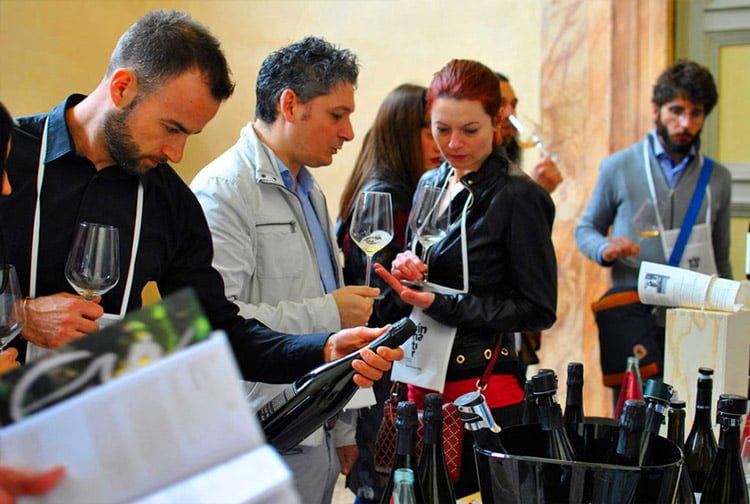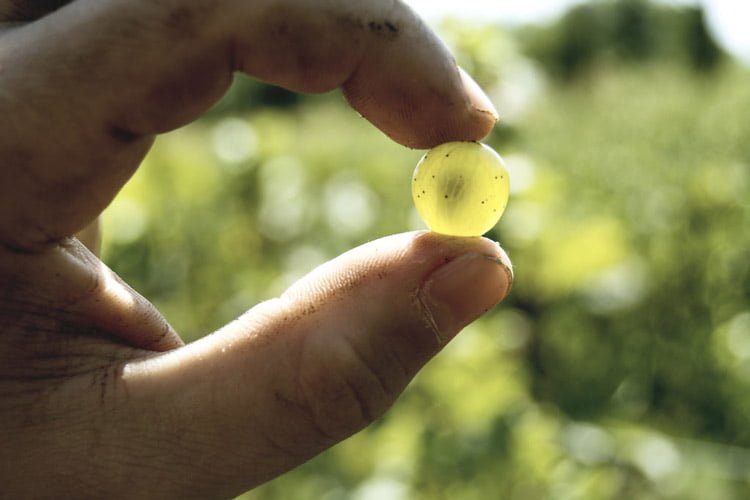It is not easy to disentangle oenological terms and definitions. This is why I thought I would answer the most frequently asked questions about what is natural wine. Let’s start with a brief explanation: natural wine is the heart of an international movement focused on 3 key values: 1) respect for the land, 2) biodiversity and 3) no chemistry in the cellar. There are no regulations regulated by law, as in the case of organic wine, but posters created by communities of vignerons who aim to create a direct relationship of trust with enthusiasts. Let’s see how…
How is natural wine produced?
One of the mottos is “wine is made in the vineyard”. What does it mean? That if the grapes are healthy there will be no need for corrective interventions in the cellar with chemical products. And natural wine aims precisely at this, starting from vineyards located in suitable positions, not forcing production, stimulating the balance and strength of the plants, working for the fertility of the soil. Treatments in the vineyard are reduced to a minimum and are targeted (not preventive). The fermentation is spontaneous and the yeasts are indigenous, that is, present on the skin of the grapes (and not selected, that is, produced externally and then added). This allows the taste-olfactory profile of the grape variety to be maintained and does not change its aroma.
What are sulphite-free wines?
Natural wines are certainly a category that allows you to have many opportunities to choose wines without added sulphites. In fact, all vignerons try to intervene as little as possible during the winemaking process. And when the vintage allows it, they do not add sulphites. But what are sulphites in wine? And what are they for? Sulphites are molecules made up of oxygen and sulfur and have an antioxidant and antimicrobial action. Sulphites are formed naturally during the fermentation of wine, but they can also be added (and we are talking about the latter). The law obliges to specify the presence of added sulphites in foods, including wine. Not only to protect allergy sufferers, but because they can induce headaches even in non-allergic individuals. The most important natural winemaking associations allow their members to make very limited sulfur dioxide additions. In these cases, the maximum values are well below the limits established by law for organic wine.
Is there an official definition of natural wine?
No, everyone can make natural wine according to their own ecological sensitivity. However, there are communities of producers who have drawn up their own manifesto in which they explain the rules that are followed by the vignerons who are part of them. Among the most common are: exclusive use of indigenous yeasts, exclusion of any clarifying and filtration action. Some also establish how one must work in the vineyard: exclusion of herbicides and chemical fertilizers, genetically modified vines, use of products permitted by the regulations in force in organic or biodynamic agriculture. A relationship of trust and direct knowledge has been established between the producers of natural wines and many of the people who drink their wines which is the strength of this phenomenon which does not need specifications and certification.
How do I know if a wine is natural?
I produttori di vini naturali si sono uniti in comunità. Ce ne sono diverse in tutta Italia. Tra queste il consorzio, , il movimento , l’associazione , l’associazione culturale . Sui siti web ufficiali trovi l’elenco dei vigneron che producono e vendono vini naturali. Natural wine producers have banded together as a community. There are several throughout Italy. Among these are the ViniVeri consortium, VinNatur, the Triple A movement, the Vi.Te association, the cultural association VAN Vignaioli Artigiani Naturali. On the official websites you find the list of vignerons who produce and sell natural wines.

What are the natural wine fairs?
One of the best and most fun ways to get to know this world in person is to participate in natural wine fairs where you meet producers, talk to them and taste hundreds of different labels. If you like the idea, read our article dedicated to Natural wine events: the best tastings not to be missed in 2023-2024.




